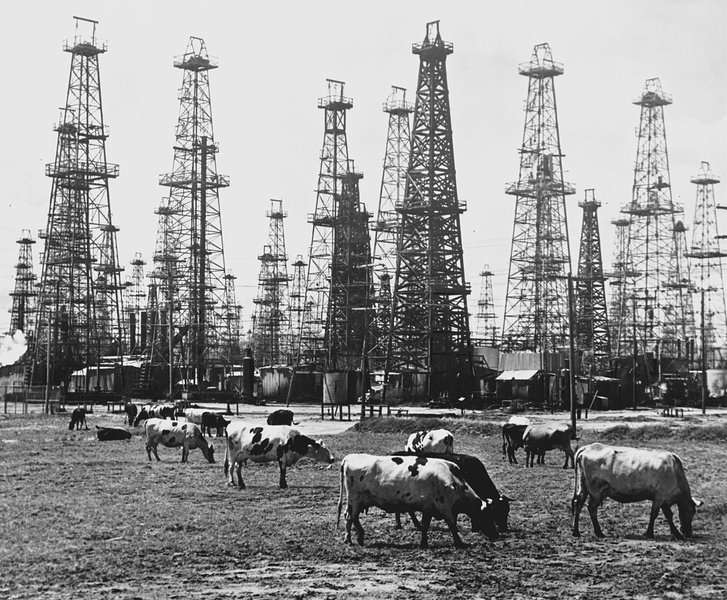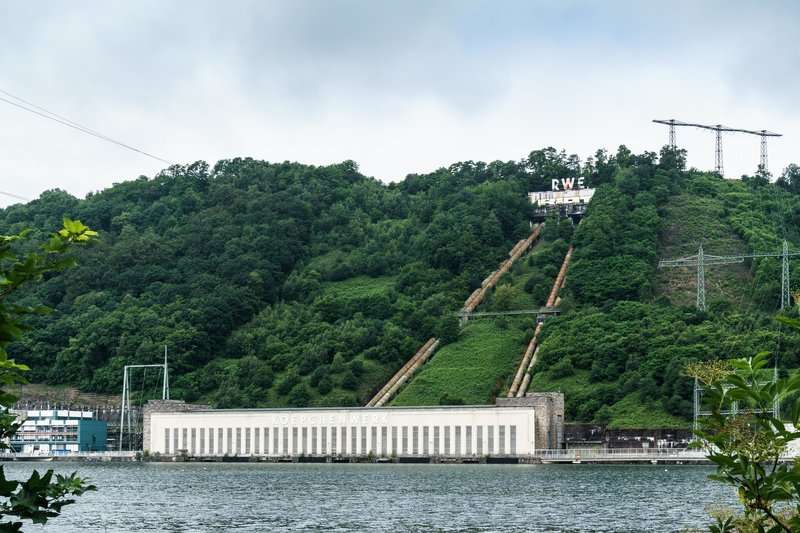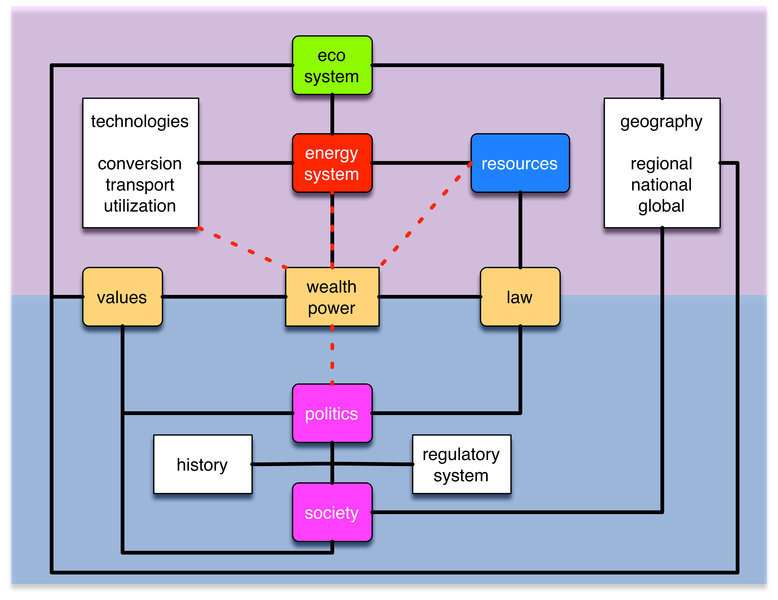A rapid transition of the world's energy systems

The world is changing but not quite fast enough. The warming of the Earth, caused by rising greenhouse gas emissions, has raised enough concern among the political leaders of the world for them to finally take action. The Paris Agreement, now ratified by 168 member states within the United Nations Framework Convention on Climate Change (UNFCCC), has set the ambitious goal of radically reducing greenhouse gas emissions until the middle of this century. The aim is to confine the increase in mean worldwide temperatures to less than 2 °C above preindustrial levels, and possibly only 1.5 °C. But scientists are warning that greenhouse gas emissions are still increasing and will continue to do so for some years to come – maybe so much that the 2 °C limit will be impossible to maintain and substantially higher mean temperatures will be reached.
However mankind changes its unsustainable lifestyle and whatever solutions are developed and implemented, one thing is obvious: we are living in a time of transition. On an economic and technological level, and on the level of geo-historical consequences, we are living at the beginning of the Anthropocene, an era in which human action is having long-lasting planetary effects and which is currently discussed as a new geological time period. The next decades will see dramatic changes in industrial production with new material cycles, new forms of labour, necessary global cooperation, exchange of technology and, in particular, in energy production. A future energy system is crucially important for all the other processes and their impact on the Earth system.
The societal and cultural implications of developments in the energy and resources sector are poorly understood. It is all too often visible that the humanities on one hand and natural and engineering sciences on the other hand live in different worlds. All too often, scientists spend little time outside the realm of their own discipline. In many cases, technically, this might work. But when it comes to challenges on historic and geo-historical scales, the lack of a broad historical perspective may also severely limit the possibilities of properly managing the transition process. A deeper understanding of the historic background of energy transformation processes is not only of academic value, it is the only way to gain a clear understanding of the dimension of ongoing development.
For this reason, the Human Science Section of the Max Planck Society is exploring the possibility to establish a new research initiative. A pilot project, a department, or even an entirely new institute could be built around one simple yet far-reaching question: How do technological changes in energy regimes interact with societal and cultural conditions and, in particular, with knowledge systems? The new Max Planck initiative will take a broad historical and systematic perspective on scenarios between the Neolithic and the present. It will involve experts from different academic fields to establish novel methods for historical energy transformation research. The importance of a broad historic perspective will be the first founding principle. The second one will be the conviction that the ongoing energy transition interacts with the core of our societal system. This calls for a broadly conceived reflective approach since such basic modern concepts as individual freedom, wealth and progress have coevolved with the current fossil-energy regime. The third principle concerns energy transformation processes, which must be analyzed in the material context of industrial plants, mining districts and global cycles of production, consumption and pollution.
New forms of analysis and description must focus on the historic interactions between specific microspheres and the planetary macrosphere. Not least, the Anthropocene and associated Anthropocene research will be a guiding principle of the interdisciplinary scientific endeavour in the new research initiative.

In keeping with the tradition of the Max Planck Society, the scholars involved in the Max Planck initiative will have ample room to develop their own ideas and work on problems of basic research. This kind of working environment will help in understanding the societal challenges of the energy and resource dynamics behind climate change. Young researchers will have great opportunities and freedom, but will also be part of a truly interdisciplinary working atmosphere.
Understanding energy and societal change
Reflecting on events from the beginning of the age of industrialization, it is conceivable that the next years and decades will also be turning points in the history of mankind. The invention of the steam engine changed the face of the world. The possibility to move objects that were nearly unmovable with the power of heat and steam, and the possibility to scale up factory production with machines to formerly unprecedented levels has slingshot our species into the modern era. At the dawn of the industrial age, coal was the energy carrier that fuelled steam engines and then power plants. Together with steel, coal enabled the construction of railroads, large-scale factories, and the electrification of cities.
Since then, new materials and technologies have done their share to change the face of the world – and humans, too. Up to every third nitrogen atom in our bodies is considered to have originated in industrial Haber–Bosch plants for ammonia and fertilizers. Chemical industrial processes have had a global impact on agricultural, biological, cultural and political processes.
After coal came oil, then plastics, and then silicon. The advanced integrated circuits based on the electronic properties of this element gave computers unprecedented power to calculate and simulate all kinds of problems. The computer age led to the age of the Internet with all the amazing cultural phenomena we experience today. But although we still struggle to understand the global cultural implications of the Internet age, with the worldwide exchange of ideas, opinions, fashion or music, we are facing the urgency of incorporating our insights into the greater picture of how mankind will live in the future. The well-being of future generations will depend upon our decisions, such as how we share knowledge and make it productive.

We are standing at a crossroads yet our maps of the areas ahead are partly blank. And that is not only due to the need for further research on the fundamental chemical, physical and biological processes in the Earth system. It is also the case that we do not know enough about how human societies interact with this system and how they will cope with the challenges of climate change and other transformations of our planetary environment. It is not clear which political, economic and technological measures will lead us into a more sustainable future. Research will help us to determine the fastest and most efficient way to implement secure and reliable grids for renewable energy sources, which are more prone to fluctuations than conventional fossil or nuclear power plants. Many political questions are connected with these problems. If one looks at an integrated regional entity such as the European Union, with all its many opinions and different interests, one gets an idea of how difficult it will be to find global agreements on the steps towards a sustainable future in energy production.
Paris is only the beginning
Massive worldwide investments in renewable energy production are necessary to avoid excessive environmental warming. The 2 °C limit is not an arbitrary decision. The consensus among scientists is that even higher temperatures will have dramatic consequences for many regions of our world, some of which we are already seeing today. Global rainfall patterns will change, causing harsh drought in some places and heavy thunderstorms in others. The altered weather systems will lead to widespread changes in agriculture and increase the possibility of famines, which in turn will provoke migration and presumably armed conflicts in many of the poorer parts of our planet. The increase in atmospheric temperature will not be evenly distributed and some regions will actually get colder. Other areas, such as the Persian Gulf region or parts of Africa, will experience much higher temperature extremes, especially in the summer months, which may mean people must stay indoors during periods of intense heat. Underdeveloped countries will suffer most from global warming, though they are least prepared to deal with it and have not contributed to it. By far the largest share of greenhouse gases have been emitted by industrialized regions, particularly Europe and the United States, but China and other industrializing countries are now joining the club.
The Paris Agreement is of crucial importance but also has its drawbacks. It is not binding; no sanctions may be invoked against countries that fail to achieve their promises to reduce greenhouse gas emissions. Even the methods of measuring carbon dioxide emissions are not unequivocally agreed upon by many governments. Instead, they are the cause of ongoing and future discussions.
Electricity production, storage and distribution is only one of the key problems in combating climate change. The emissions of all kinds of traffic – by land, sea and air vehicles – are even more difficult to substitute by sustainable energy sources than the generation of electricity. The same holds for emissions from agriculture, heating and industrial processes.
The state of affairs in climate politics

Yet, there is some reason for optimism. In a globally competitive economy, energy prices are major contributors to the competitiveness of any nation. Thanks to decades of dedicated work by scientists worldwide, the cost of electricity production by renewable energy sources has arrived at about the level of fossil fuels. The prices for wind energy in wind-rich regions have been competitive for some time. And the past years have seen a rapid decrease in the cost of photovoltaic power production. In some areas with high levels of solar irradiation, photovoltaic power plants are already the cheapest energy source available – as long as the Sun is shining. Storing heat or electricity for the night or on rainy days is expensive and presents basic scientific and technological challenges. To integrate volatile electricity into energy systems that consist of both electrical and molecular energy carriers, it is not sufficient to consider renewables and storage as 'drop-in' solutions. We need to redesign the whole system of energy and material supply. The redesign includes technical, economic, regulatory and societal aspects and must be based on a rigorous understanding of the interrelation between technical and societal interactions mediated through economic and regulatory measures. With this perspective, it is timely to begin with a holistic consideration of structures and concepts in our energy systems. The energy markets are moving with growing speed. It is maybe not pure chance that the Paris Agreement was signed in 2015 – the same year that the newly built renewable electric power capacity for the first time in history overtook the addition of fossil power plants. The importance of these technological and economical advances cannot be overstressed. Investors and insurance companies are starting to think about investing in renewable energy packages on very large scales.
To reduce investment risks, actors in the financial markets are trying to find the best ways to implement huge investment packages, where the failure – technological or political – of one big project will not endanger the whole investment. These considerations are especially important because many investment opportunities will be in parts of the world that are not politically, socially or economically stable. The negotiations in Paris were primarily about finding an agreement that nearly all countries would be ready to sign. One year later at the climate summit in Marrakesh, Morocco, many discussions focused on new technological solutions and business opportunities.
Provided by Max Planck Society




















